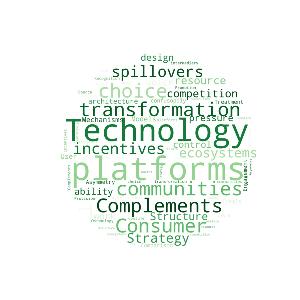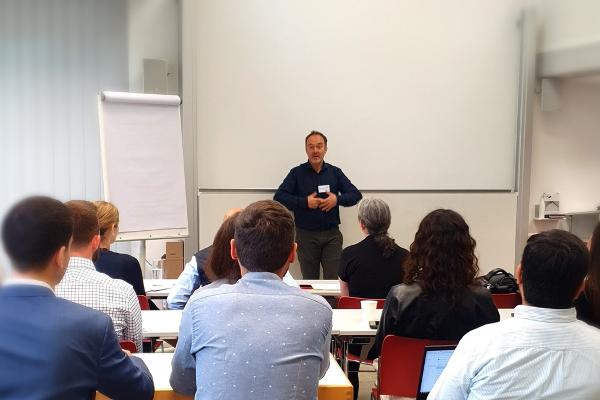
Research
Science goes beyond writing papers. Therefore, we offer young scientists the opportunity to develop expertise while becoming part of the international research community.
Skip to content
Publications
Dive into our research and explore our publications. The full list of our publications is at Open Access LMU.
Fields of Research
This stream of research examines the economic implications of digitization and online markets. What kind of new business model innovations and technologies are rising in digital markets? How can firms and startups grow and compete in the online world? What is the role of regulation in data markets? We study these questions in topics such as news aggregators, algorithms, digital entrepreneurs, polarization on social media, and data privacy.
Two-sided platform markets, where an intermediary connects complementors and users, are gaining prominence in our economy. However, there is still much to uncover about the strategies employed by platform owners and complementors in these markets. Have you ever pondered the process of launching a platform with the assistance of in-house produced offerings? How do competitive dynamics and strategic responses shape the landscape of platform-based business models? How does competition influence platform owners' decisions to vertically integrate?
In this ever-changing landscape, comprehending the complexities of platform dynamics is of utmost importance. It holds the key to effectively navigating these dynamic and evolving markets. Our research seeks to elucidate the underlying forces that drive platforms’ success and the challenges they face. We examine various industries which heavily rely on platform strategies, such as e-commerce, telecommunications, social media networks, digital health services, gaming, cloud computing, and more.
How do employees collaborate? More generally, how do individuals share and seek knowledge? In particular, in a digital setting, how can we ensure the performance of organizations? With the rise of remote work, new questions and challenges are emerging. The roles of performance pay, monitoring, feedback, anonymity, and multiple affiliations are explored in our research, mainly through lab and field experiments.
Our research also focuses on open-source communities. How do open-source principles foster collective intelligence and innovation? How do they promote transparency, shared ownership, and collaborative problem-solving, thereby transforming transitional hierarchies? We study the transformative power of these principles and their contribution to disruptive, forward-thinking organizations.
Methods and Approaches
Our research involves empirical and quantitative methodologies, with a distinct focus on specific phenomena. We leverage large datasets derived from various sources by means of web scraping and even negotiating access to proprietary data. The tools to analyze these data and test our deductively derived hypotheses range from statistical inference to panel data analysis to generate interesting insights.
With causal research methods, we delve into the intricate relationships among variables. Our use of lab and field experiments, as well as quasi-experimental and natural experimental designs, allows us to isolate cause-effect dynamics. This targeted approach enables us to gain a robust, in-depth understanding of specific phenomena.
By applying principles of microeconomics and formal modeling, we decode economic behaviors and decision-making processes. Utilizing utility functions, structural models, discrete choice analysis, and simulations, we construct comprehensive models. Our work, often driven by real-world phenomena, delivers nuanced insights into economic scenarios.



